


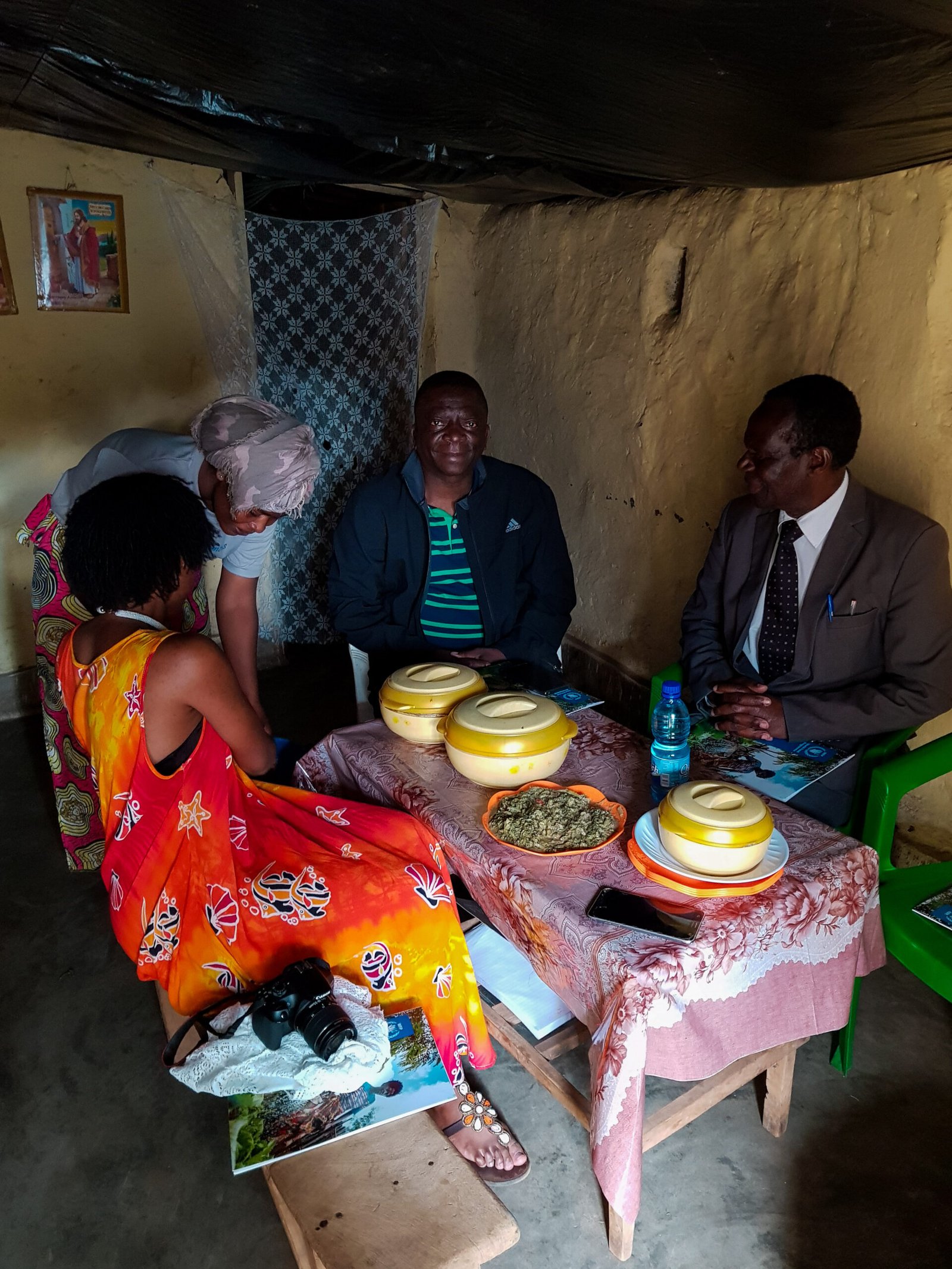
I got home about an hour ago. All afternoon, I had been thinking of taking the clothes I had placed earlier in the washer out. That was the most important thing I had to do today – moving my clothes from the washer, to the dryer.
I spent a couple of hours at Dzaleka Refugee Camp with the UN World Food Programme for the World Refugee Day 2019 coming up this Thursday.
From the top –
A refugee, by definition, is a person who has been forced to leave their country in order to escape war, persecution, or natural disaster.
I posted on my social media about my day at Dzaleka, and my friends’ instant reactions were those of pity, and at times empathy. One of my followers on Twitter shared a curiosity I had all my life.
“Do they have schools, and hospitals at the camp?”
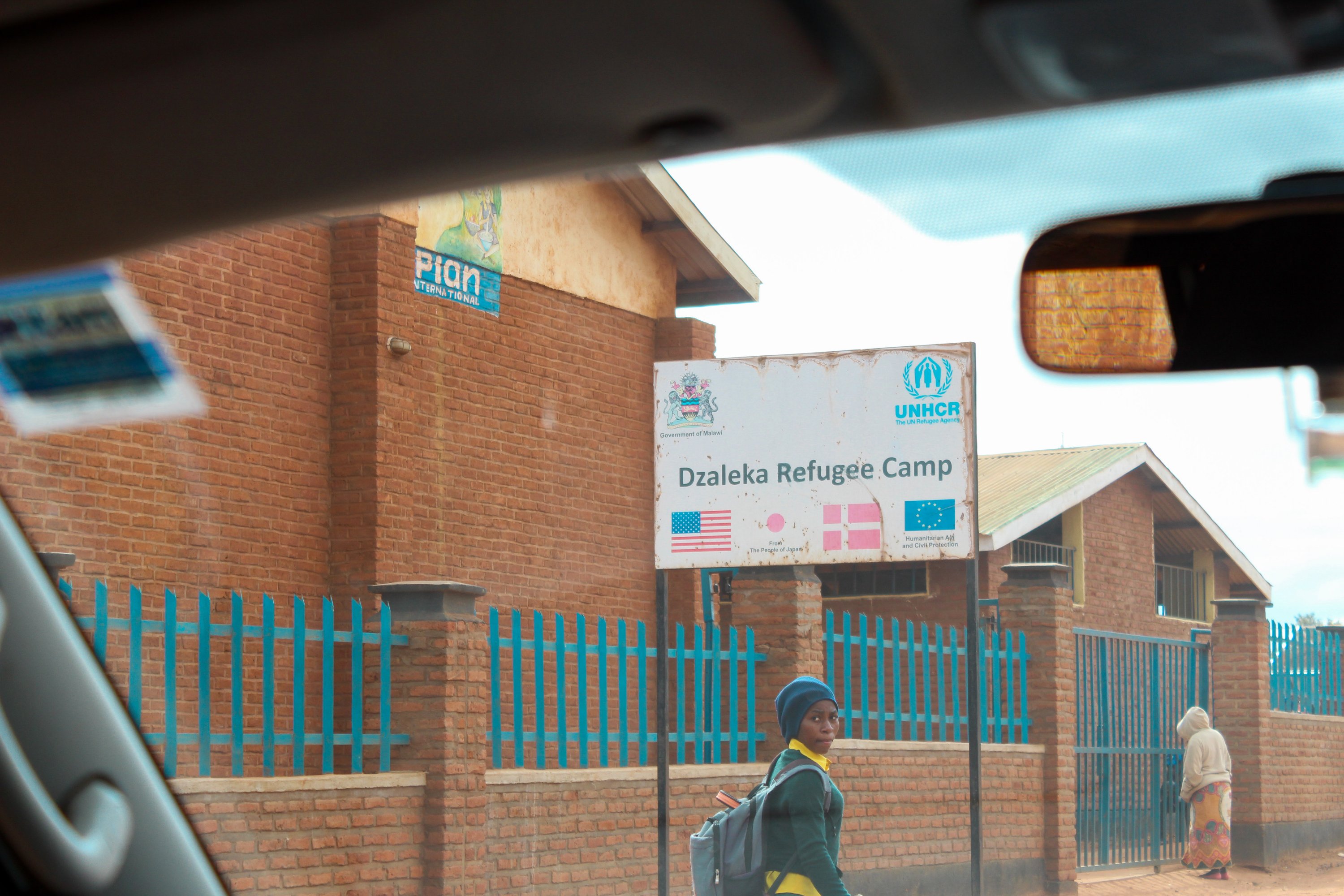
Before my visit, I would not have had a response to that question. However, today, I had a clear, and precise one.
“Yes, they do.”
As of today, I can speak as someone who has engaged with a refugee. I use the word refugee with a minor discomfort. I do my best to refrain from allowing my privilege to give me a savior mentality. I use this term more as an identifier – a nationality of some sort.
Refugees cannot apply for citizenship. Malawian policy does not permit this. There are children who are now near 30 who were born and raised in Malawi. Some came to Malawi at very young ages. They have no recollection whatsoever of their parent’s homes.
Children born to refugees are at risk of statelessness. What this means is that as a child born to a refugee in Malawi, I cannot qualify to Malawian citizen, but also do not really qualify for the citizenship of my original country.
Under international law, the enjoyment of human rights is, in most cases, not attached to holding a specific nationality. Despite this gradual ‘denationalisation’ of human rights, nationality still appears to be crucial for the actual enjoyment of human rights and the access to protection mechanisms in case of rights violations. Not having a nationality – being stateless – may easily push a person into the margins of society, exposing her/him to poverty, exclusion, and all sorts of human rights violations. And even in the absence of such grave consequences, statelessness may still cause numerous difficulties at all spheres of everyday life.
As stateless people, UNHCR comes in to support them when there is a need. The Refugee access gives them access to different facilities they make seek out of the country they are living in.
I had been paired with the two Samuels, the Principal Secretary, and his colleague, from the Ministry of Home Affairs and Internal Security to join Devota’s family for lunch.
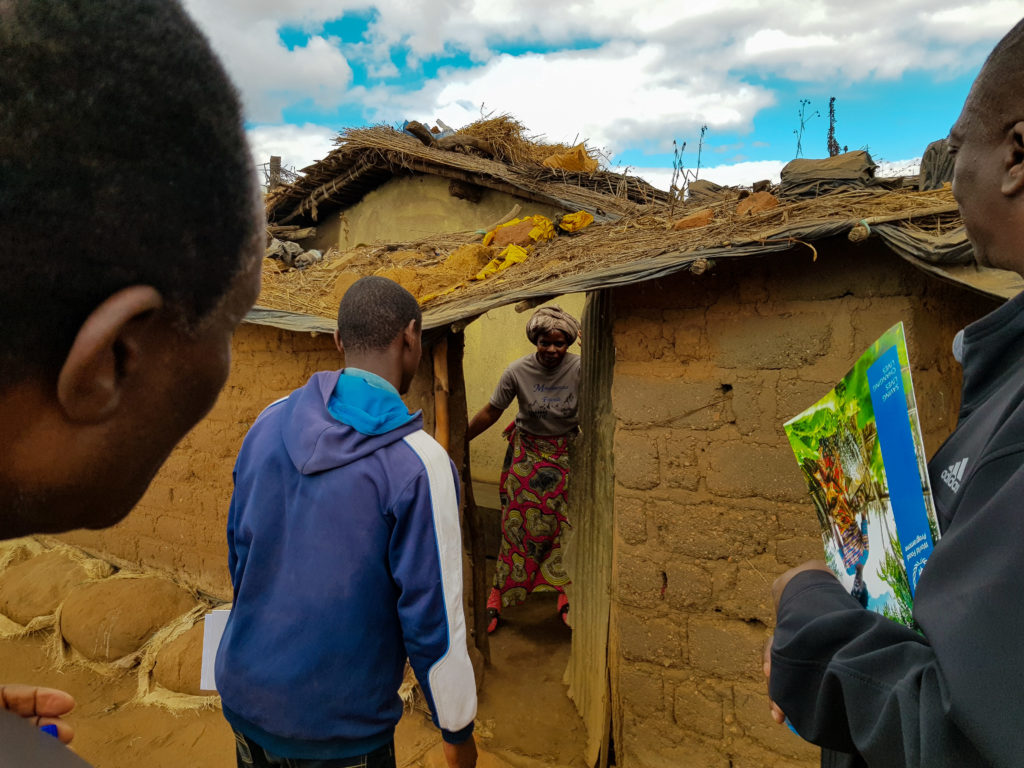
Devota and her grandmother ushered us through the gate into their warm home. It was tightly fenced, which reminded me much of my mother’s village – a small bay in Mangochi on the Lake Malawi called Mvunguti. The tightness would also remind you of modern day area 49, if you’re more privileged.
Barbara was not wrong when she had assured me that I would be impressed by Devota when I met her.
Devota Iradukunda, through the “There’s Hope Scholarship” is in her fourth year of her undergraduate studies at the Blantyre International University. She is studying Social Sciences, focusing on Community Development.
“I speak 5 languages – Kirundi (her mothertongue), Kinyarwanda (which per her description is eerily similar to Kirundi), Chichewa (Malawi’s native language), Chitumbuka (or Kitumbuka, as she pronounced it) and English.”
The PS, alongside all of us were shocked when she spoke of Tumbuka because that was the least of our expectations.
“Why Tumbuka?”
“I interract with some Tumbukas. I had to learn.”
“No, you are brilliant, and have the zeal to learn.”
He continued to give an example of himself, as his wife is Tonga and absolutely fluent in Tonga and Tumbuka, but be has successfully failed to learn either languages.
“Learning new languages is such a chore for us old people. I have to ask you to repeat the definition of a word to me at least 5 times before it finally registers. All my children are fluent in Tonga though. Their mother taught them well. You see, women hold all the power in these households.”
The walls reminded me of all the houses I saw growing up. In Mangochi, most of the population is not so well to do. I spent parts of my childhood helping our maid, Anaphi, build her houses at her home. It was an enjoyable process, throwing mud onto the neatly arranged wood randomly – and then watching her and her older daughters smooth it out into a complete home.
The roofing is Devota’s home was also quite similar to Anaphi’s – black paper under the thatched roof to make it waterproof in case of rain. I noticed a gap in between the papers, and thanked the heavens it was june – because if it was December, it definitely could have rained on us.
Devota kept us company for a few minutes, and then served us with the food she had prepared.
“I made nsima, some fish and some vegetables.”
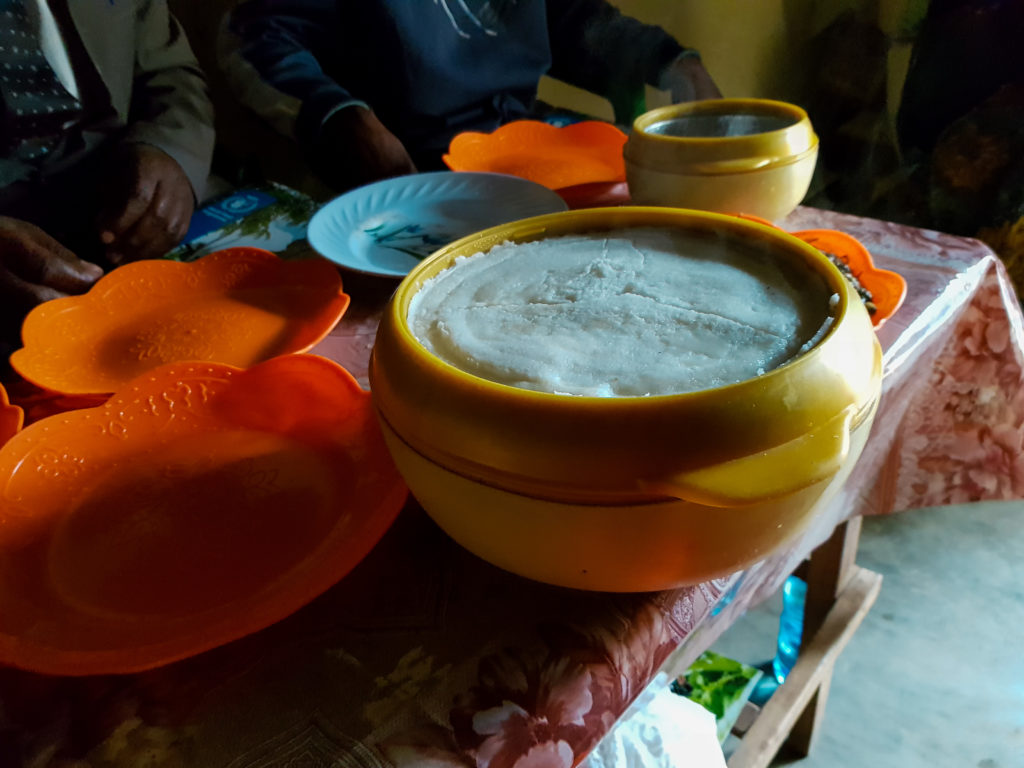
Nsima is the Malawian version of what is known as ‘pap’ and ‘ugali’ to other countries. It is made from maize flour, slowly cooked over a fire.
I am very judgmental as to how nsima is prepared. I consider myself a connoisseur of nsima. I learnt how to prepare nsima at the age of 8, and have since perfected the art. it’s a delicate art – preparing nsima, and one does get better at it with time. I will tell you if/when your nsima is undercooked.
Before we had gotten to Devota’s house, we stopped by a maizemill. Monique Ekoko, The UNHCR representative was completed opposed to the idea of removing the husk from the maize before milling it. The PS took his time enlightening her on the Malawian culture.
“In Malawi – if people will rate it as good nsima, it must be without the husk. Ufa oyera is considered a treat when you have visitors.”
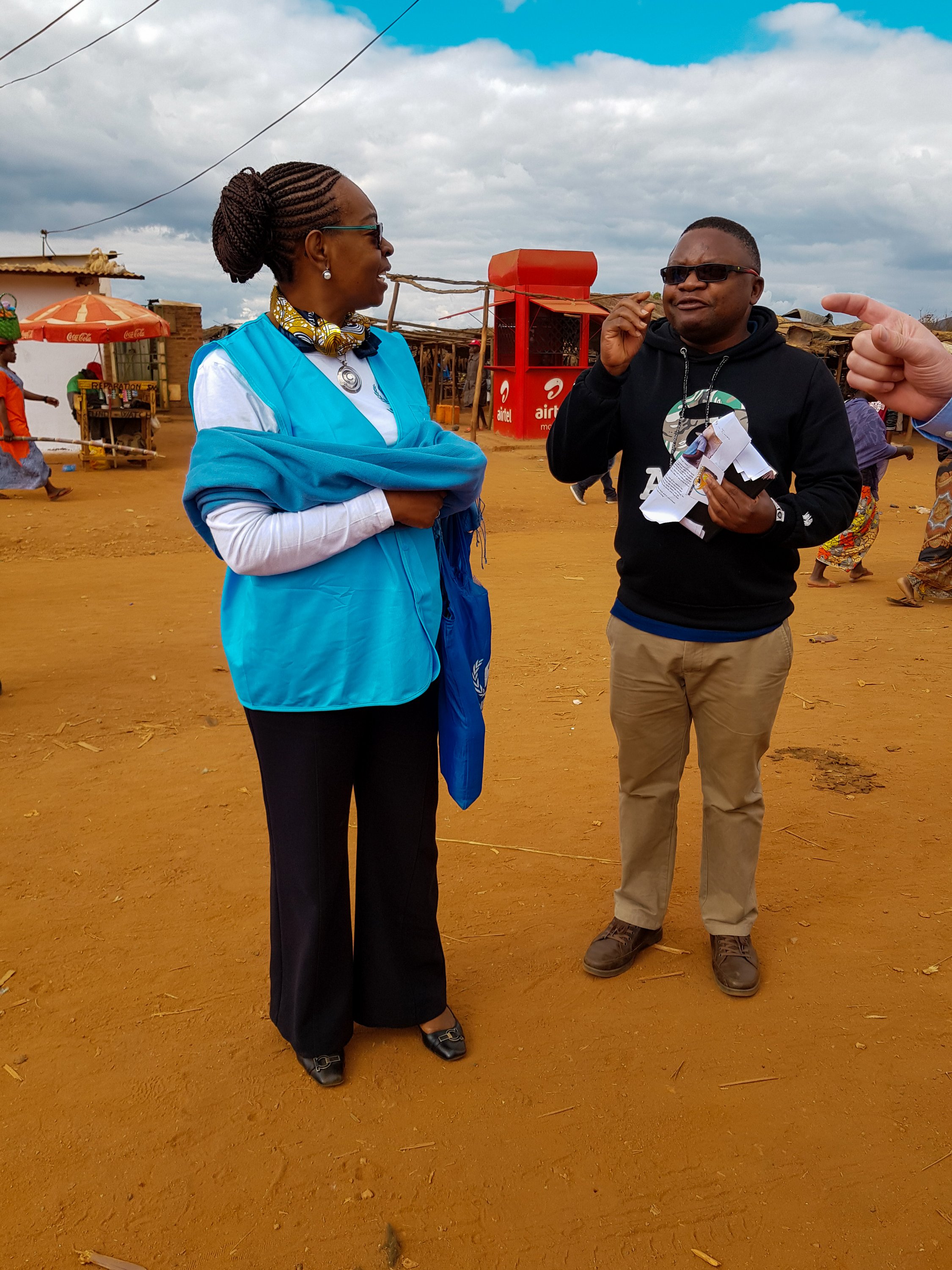
“That’s the best part for digestion, you know. I buy my maize with the husk – what do you call that one… ‘M’gaiwa’. Mgaiwa has fibre, and helps with your digestion, so the removal of the husk is rather counterproductive when it is the husk that I want.”
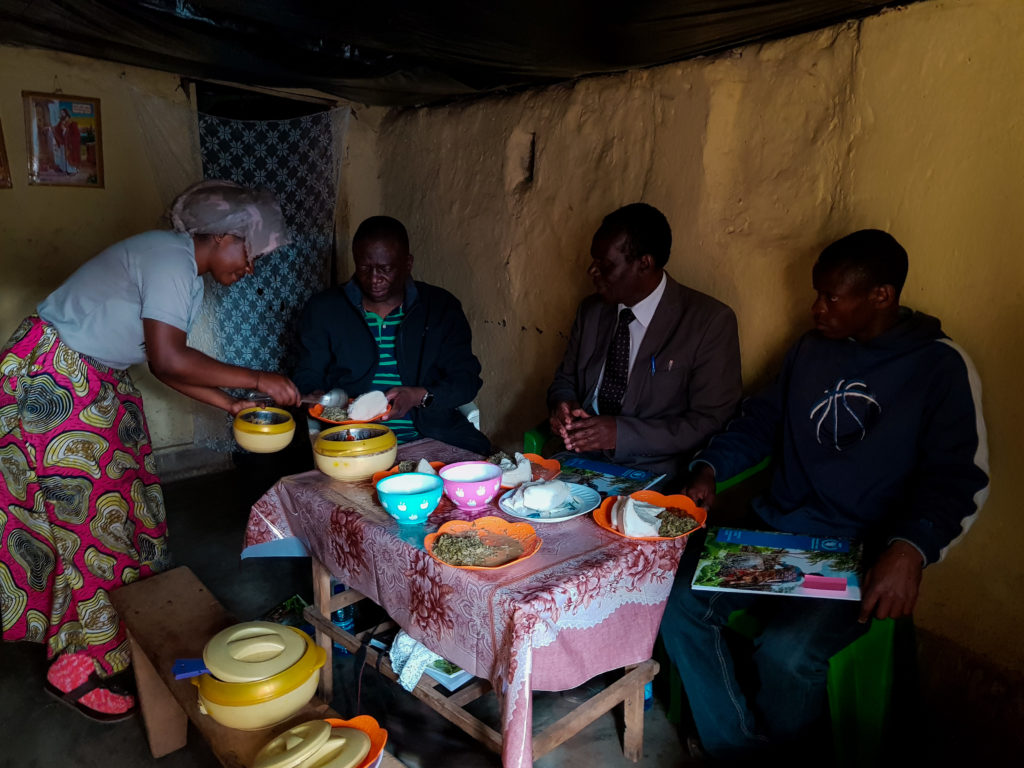
Devota’s grandmother said a prayer for us in Kirundi before we had our meal.
My review is not biased in any way, when I tell you that their nsima was the best meal I have had this whole year. This may be due to the fact that I rarely eat nsima (as my boyfriend prefers chapati to ugali on most days).
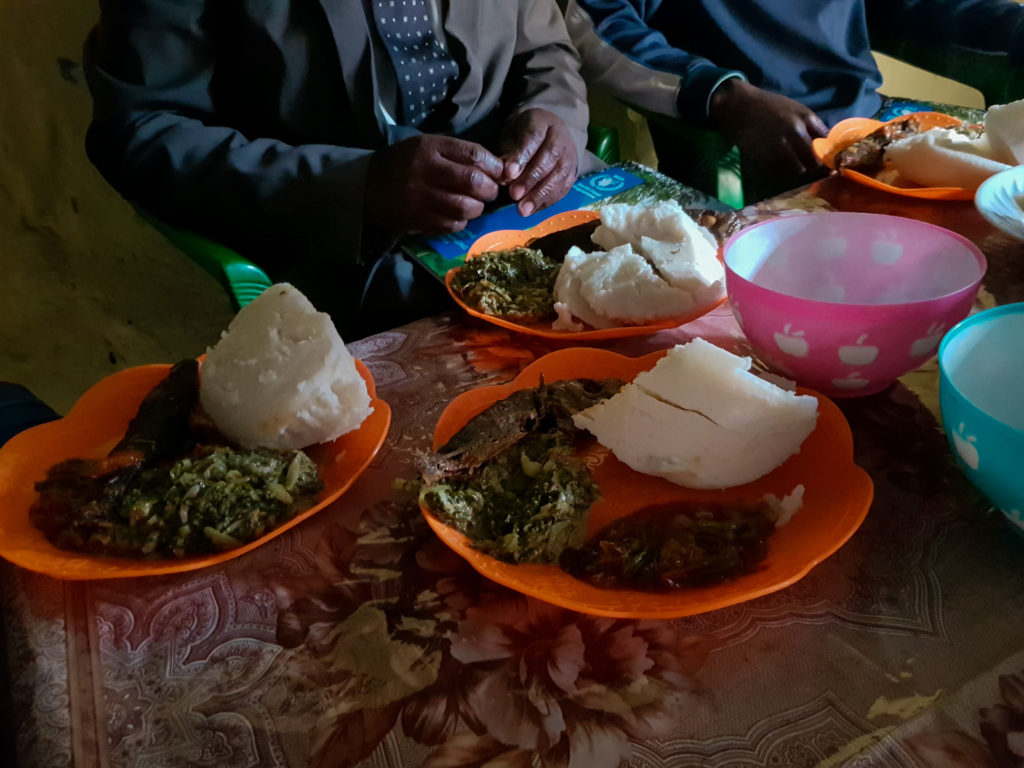
Barbara joined us just as we had started to eat, as she had just come to join us on her way to run more errands.
“Uuuh there’s fish. Now I am excited. “
We convinced her to sit and eat with us. It was her first time having nsima in the camp. She claimed to have eaten food in the camp before, citing Chapita, to which Devota disagreed with her.
“I don’t think chapati is food.”
This statement came as a surprise to me, as prior to our trip, we had been told that Chapati was a staple food for people at the camp as most of them are East-Africans.
Devota considers chapati more a snack, than a meal.
“You have to take the chapati with other things, like beef, beans and other types of relish for it to be a meal,” added Barbara.
Samuel added that Chapati is also a staple in his tribe, Yao – a culture he suspects was inherited from the Arabs. Another shocker to me. Barbara proved to be one huge fan of Chapatis.
“After my first time having chapati here, I went home and looked up how to make Chapati. I had to learn.”
I asked Barbara for her review after eating nsima for the first time.
“I have had nsima before actually – but as pap.”
“Oh that is hardly the same thing. They have the same ingredients yes, but pap, nsima and ugali are made so differently!”
The team seemed to agree with me. Samuel noted that Zambians and Malawians make ns(h)ima in a similar way. … chipped in, to surprise me with the fact that congolese people also prepare it in a similar way.
I have never been amused with the way Ugali is prepared. Uneccessarily hard. Could do well for a weapon to kill an intruder of some sort. I am yet to try pap – but from the pictures I have seen, it is simply displeasing. The presentation could be better, surely?
We asked Devota if she had any plans of leaving the refugee camp upon the completion of her education.
“It is my life. I have to.”
Samuel was absolutely in agreement with her. He went further to advise her that if she does get the opportunity to leave Malawi, she should leap for it.
“I was privileged enough to be among the first people to work with Dr. Banda in my early years. I have travelled to, and lived in, 47 countries to date.
I have two of my daughters in Canada at the moment. I have managed to force the other one to to complete her studies in Malaysia. The only two who are still stuck with me are the twins, who are now 11. As soon as they can leave the nest; I will support them in the best way I know how.”
Devota also noted how she will be able to better take care of her grandmother when she has graduated and is no longer living in the camp with her.
The conversation must have been really great, because without notice – our plates were empty. I had initially thought I would get more food for myself, but was just so full and nearly ready for a nap.
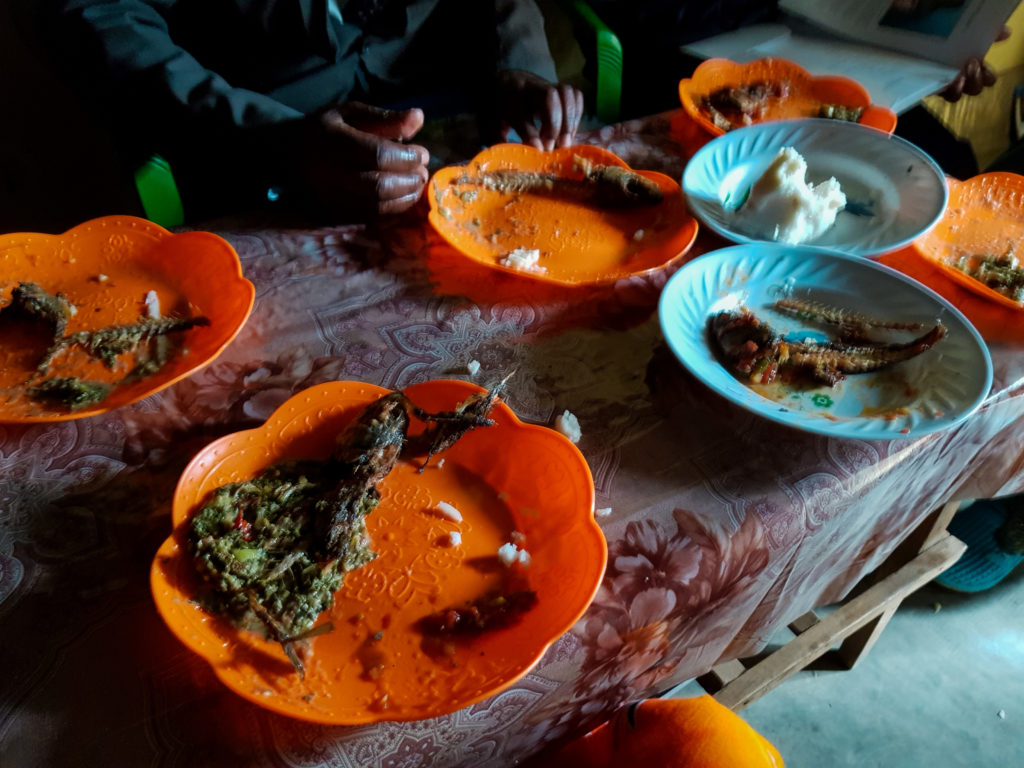
“In my culture, when someone has allowed you into their home and shared a meal with you, they are really your friend,” commented Samuel Madula.
The principal secretary gave Devota his contacts and told her that he will be taking her home under his wing. He explained how much of a difference it would make if we would all take the initiative to assist just one household that is less-privileged around us.
“If there is ever a need, call me.”
Devota and her grandmother escorted us outside the gate as we left. Devota went further than her grandmother, and took us all the way to the t-junction that led us into a bigger in the camp.
“I will turn back here.”
My heart at that moment was so full. A household, that most would define as less privileged had filled my heart with more warmth than I could carry.
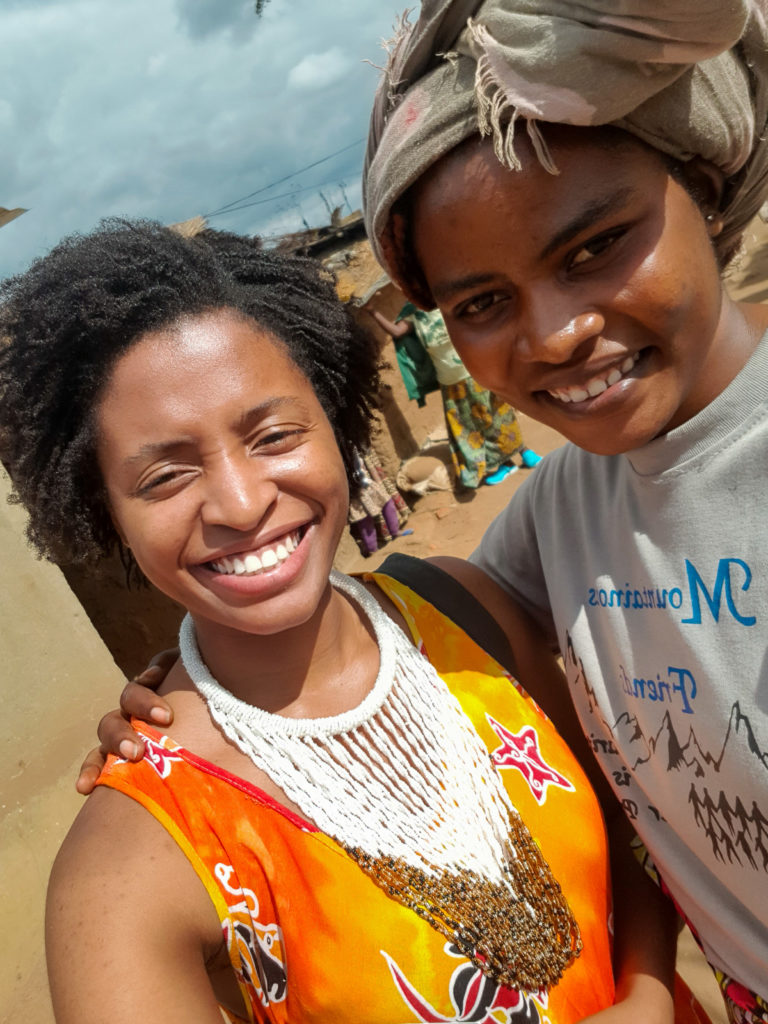
I skipped over the puddle of water ahead of me – noticing the ducks enjoying their drink; thinking about privilege and prerogatives.
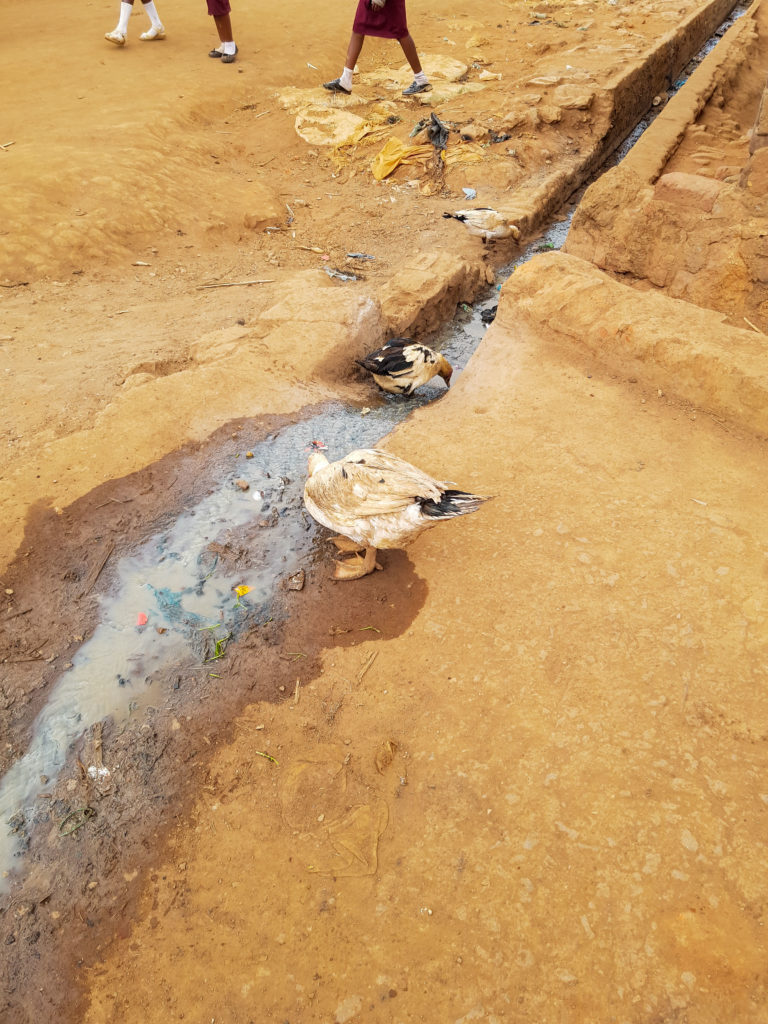
Amazing, how life deals us all different hands – and through our different magnitudes of pain and suffering; their is still much love, much life to be given.
I got home, and transferred my clothes from the washer to the dryer.
I thought about Devota and her grandmother, with no electricity, and no running water at her house to have to worry about a washer. Their concerns are quite different from mine, but relevant nonetheless.
In my privilege, I would consider how Devota and grandma must be suffering when they are not able to access the luxuries I have had the privilege of accessing. In my privilege, I would speak for Devota and grandma, telling you how they need a washer and a dryer, when they lack the very basic needs that are water and electricity to even consider luxuries.
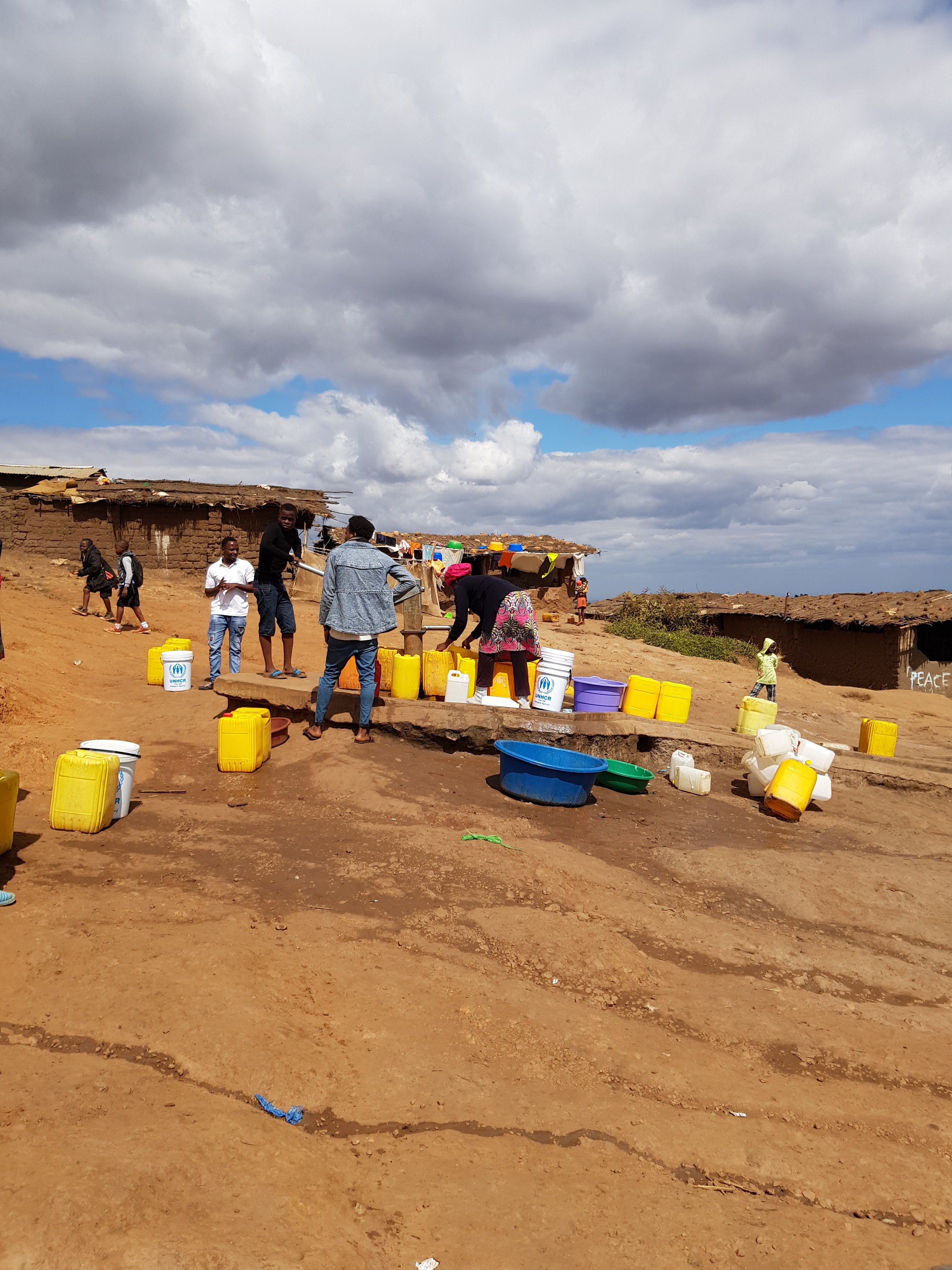
I have a memory of Devota and grandma imprinted in my head – happy, and smiling. 16 years in a refugee camp – facing plenty of adversities; and yet so full of life and gratitude.

I am thinking of the community I spent my day with. It was a full community. A community housing near 38,000 lives; a whole market and plenty creative and talented individuals.
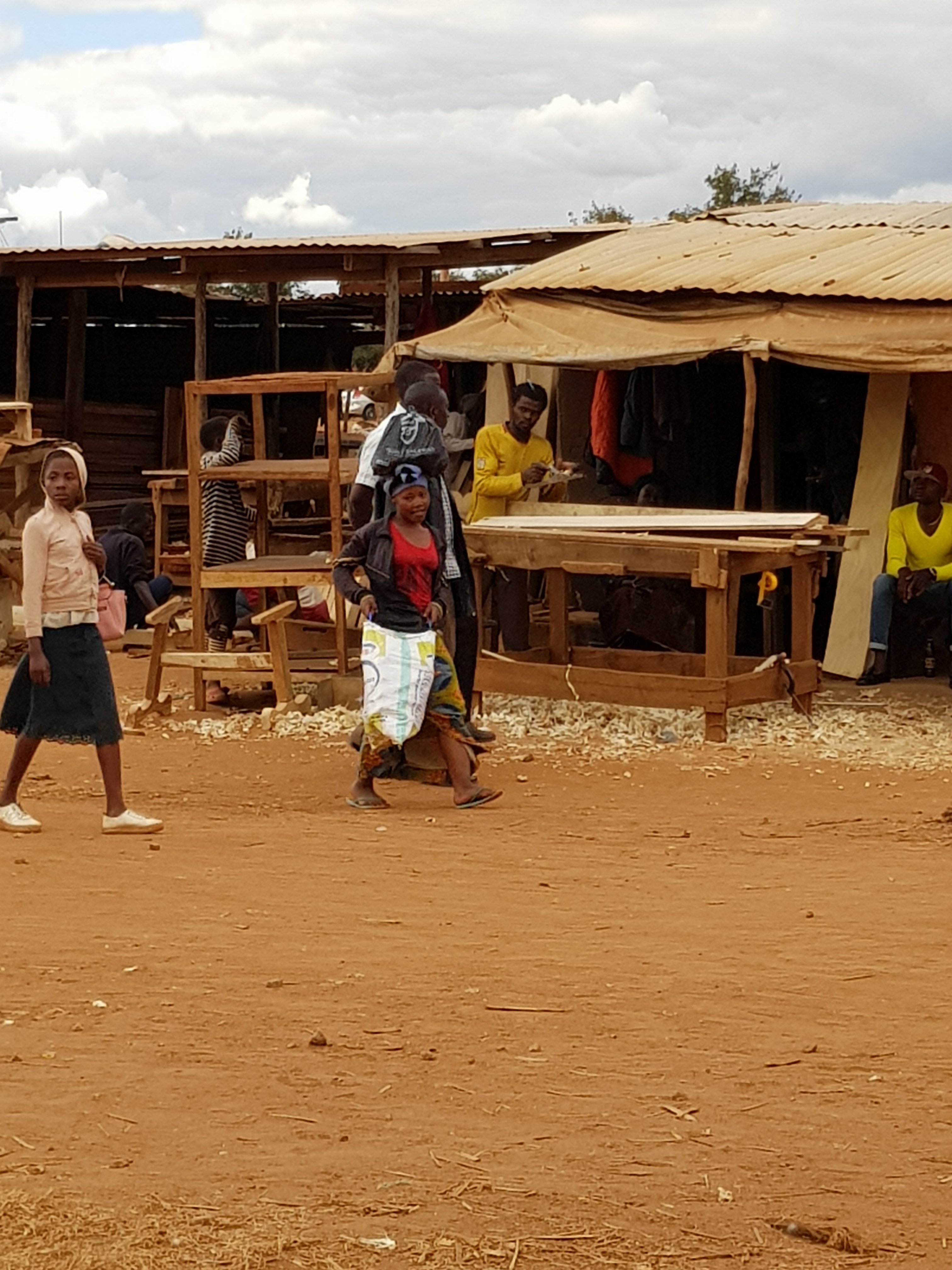
There are happy people, real people. Real people facing real problems, but also real people who make do with the hand that they have been dealt. Real people who are hardworking. Real people who are happy.
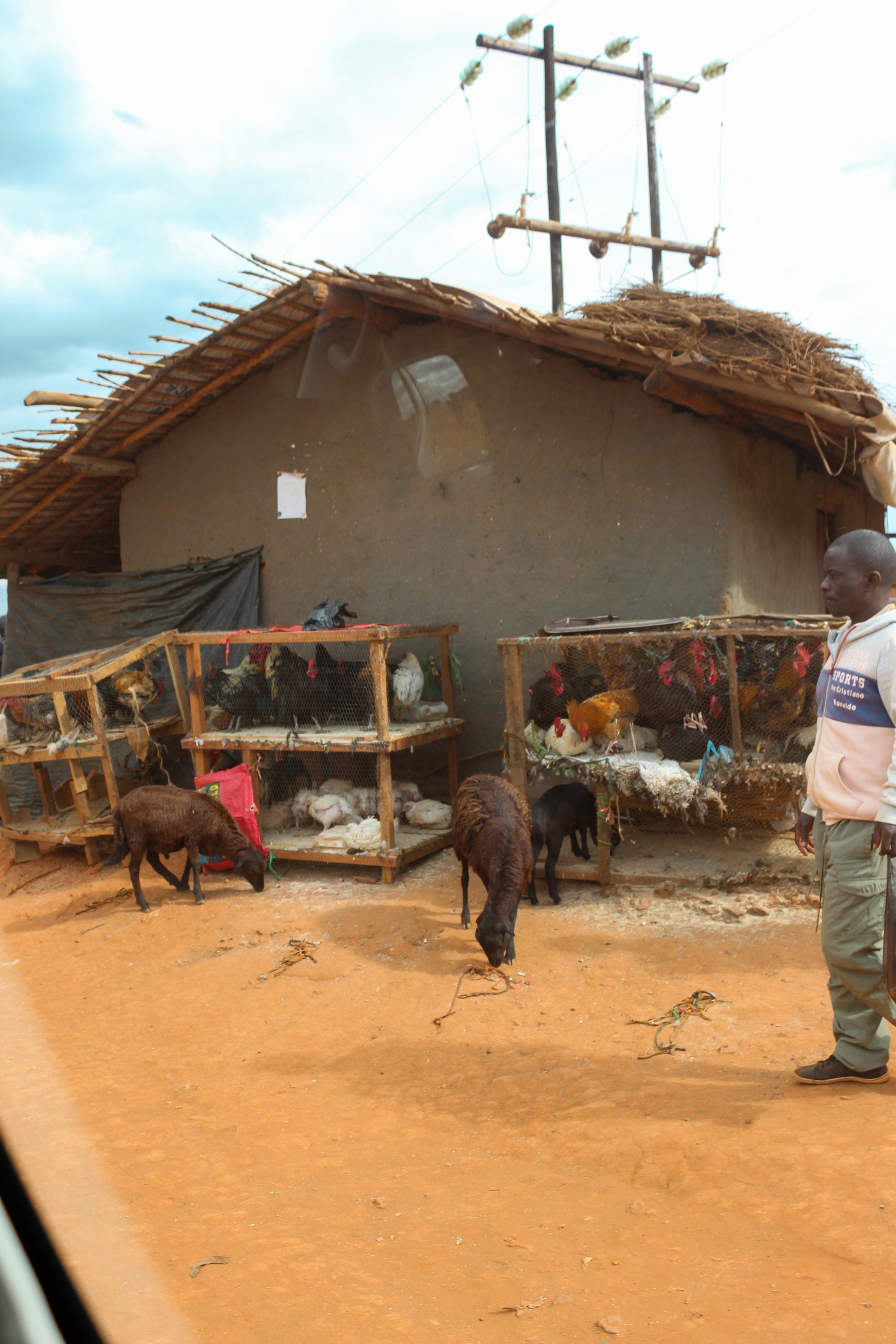
I’m thinking of all the ways I could help them. I am thinking of what I can offer them that can assist them; and this reigns supreme – my humanity. I have to put aside my privilege, my ego, my prerogative, and my savior mentality.
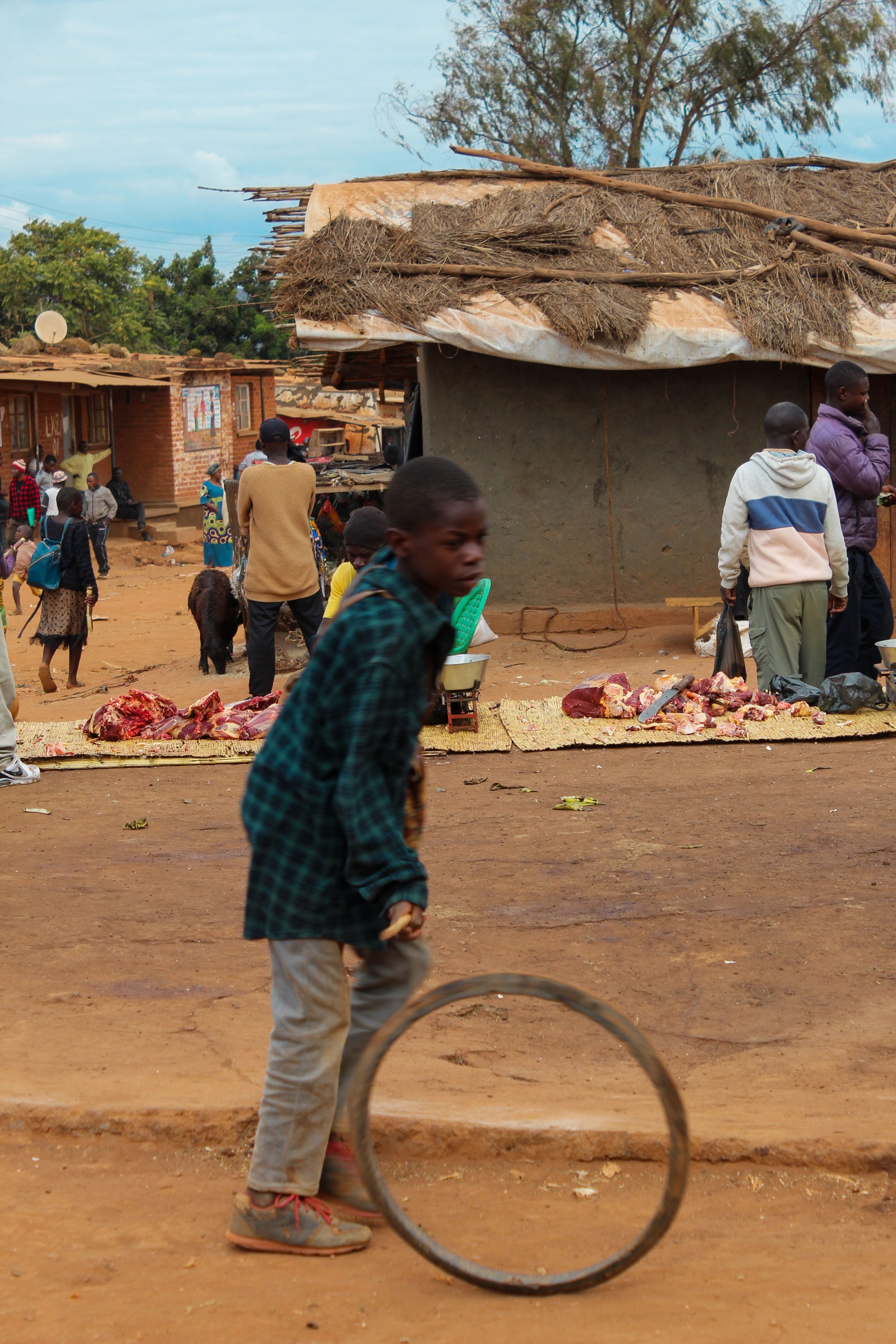
I have to be able to silence myself so much around them, and be able to listen, really listen, about how I can be a better ally to them.